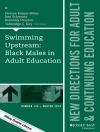Rethinking a Sustainable Society Alan Mayne The world has already passed the midway point for achieving by 2015 the eight Millennium Development Goals for a “more peaceful, prosperous and just world” that were set by the United Nations in the wake of its inspirational Millennium Dec- 1 laration in 2000. These goals range from combating poverty, hunger, and disease, to empowering women, and ensuring environmental sustainability. However Ban Ki-Moon, the United Nations Secretary-General, conceded in 2007 that progress to date has been mixed. During 2008 the head of the United Nations World Food P- gramme cautioned that because of the surge in world commodity prices the program had insuf?cient money to stave off global malnutrition, and the World Health Or- nization warned of a global crisis in water and sanitation. Depressing news accounts accumulate about opportunities missed to achieve a fairer world order and ecolo- calsustainability:themanipulationofelectionresultsin Africa, humanrightsabuses in China, 4000 Americans dead and another nation torn apart by a senseless and protracted war in Iraq, and weasel words by the world’s political leadership in the lead-up to negotiations for a climate change deal in 2009 that is supposed to stabilize global carbon dioxide emissions. It is clear that the parameters of the debates that drive progressive policy change urgently require repositioning and energizing. As is shown by the contributors to Rethinking work and learning, experts in the humanities and social sciences (HASS) couldhaveanimportantroletoplayinthisprocess.
Tabla de materias
Introduction: Challenges in Adult and Vocational Education for Social Sustainability.- Introduction: Challenges in Adult and Vocational Education for Social Sustainability.- Social Sustainability Perspectives in Adult and Vocational Education.- Advancing Social Sustainability Through Vocational Education and Training.- An Ecology for the Fourth Pillar: Imaginal Learning for Social Sustainability in AVE.- The Historical Contribution of AVE to Social Sustainability in Australia.- The Language of Longing: Rationality, Morality, and Experience in Education for Sustainability.- Foundations for Social Sustainability in Adult and Vocational Education.- Educating for a Sustainable Democracy.- Transformative Learning and AVE for Social Sustainability.- Education, Religion, Sustainability, and Dialogue.- The Role of Religion in Education for Social Sustainability.- Creating Spaces for Social Sustainability in Adult and Vocational Education.- Claiming Sustainable Space: Families, Communities, and Learning, an Auto/Biographical Perspective.- Health Literacy and AVE for Social Sustainability.- Education in Post-conflict Environments: Pathways to Sustainable Peace.- Social Sustainability and Activation Strategies with Unemployed Young Adults.- Adult and Vocational Education for Social Sustainability in Action.- Chasing the Vultures Off the Roof: AVE for Living in Sierra Leone.- The Contribution of Non-formal Adult Education to Social Sustainability: Policy Implications from Case Studies in the Asia-Pacific Region.- Community Adult Learning Contributions to Social Sustainability in the Asia-South Pacific Region: The Role of ASPBAE.- Birds Learn to Swim and Fish Learn to Fly: Lessons from the Philippines on AVE for Social Sustainability.- Breaking the Silence: Exploring Spirituality in Secular Professional Education in Australia.- Waldorf Schools as Communities of Practice for AVE and Social Sustainability.- Conclusion. AVE for Social Sustainability: Where to from Here?.












